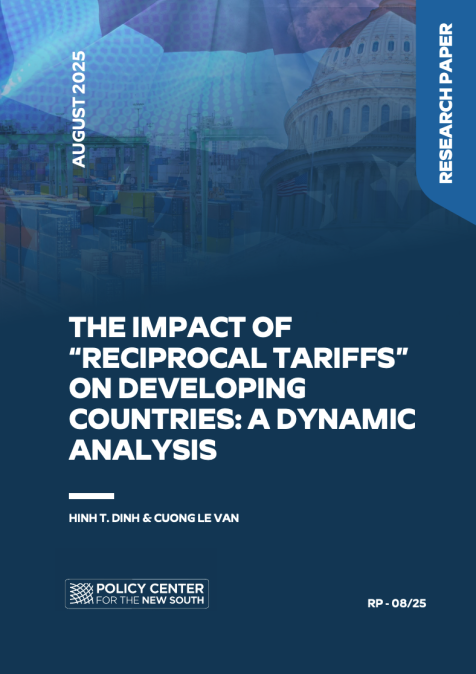Publications /
Research Paper
This paper develops a continuous-time optimal control model to analyze the economic effects of the U.S. administration’s newly imposed “reciprocal tariffs,” which are determined by bilateral trade deficits. The model focuses on a small, open developing economy integrated into global value chains and facing limited policy space. We demonstrate how reciprocal tariffs, endogenously linked to the trade balance, affect production, consumption, capital accumulation, and overall welfare. We derive the full dynamic system, characterize its steady state, and explore the implications of domestic policy responses. The paper concludes with detailed policy recommendations for developing countries navigating this new trade environment, highlighting the roles of import substitution, export diversification, and regional cooperation in mitigating vulnerability to reciprocal tariffs.





